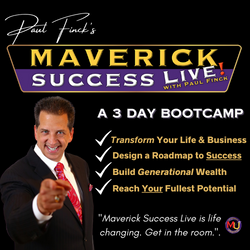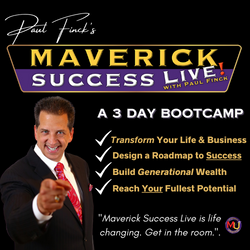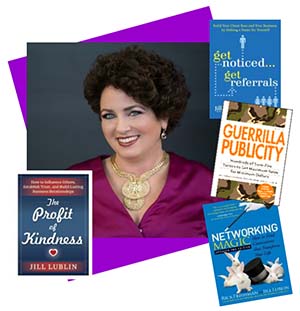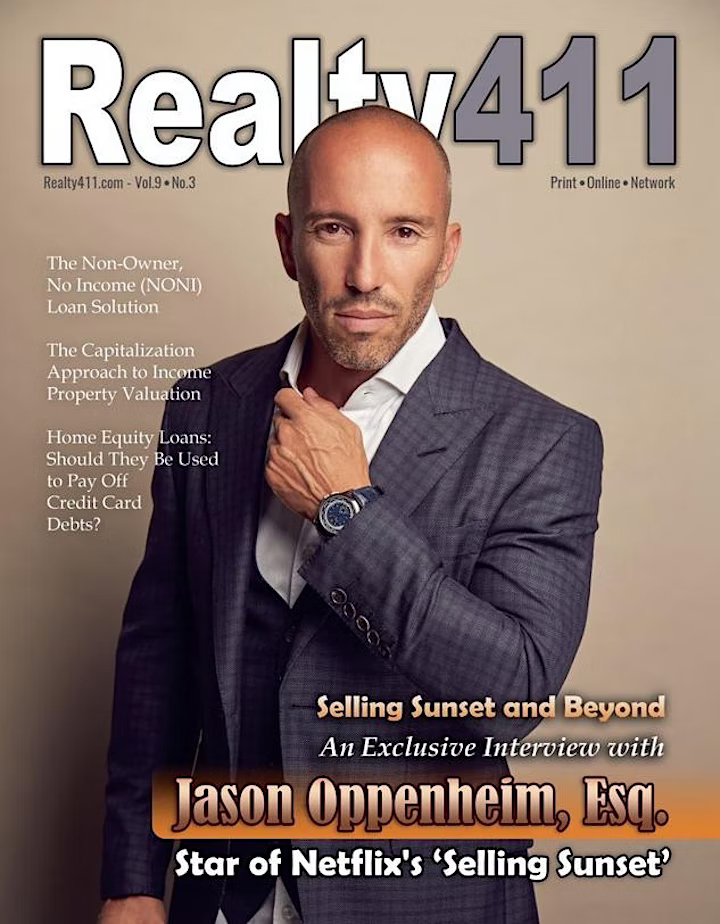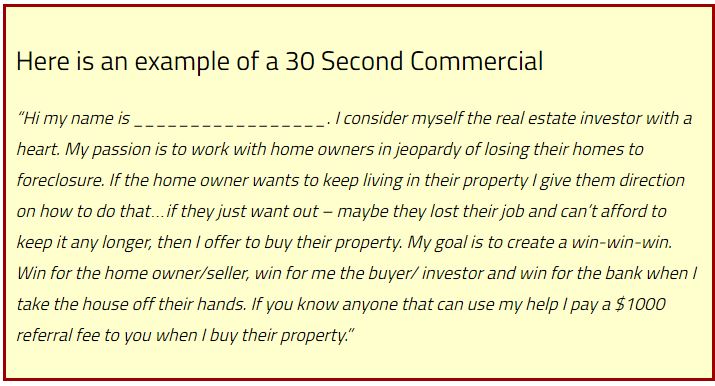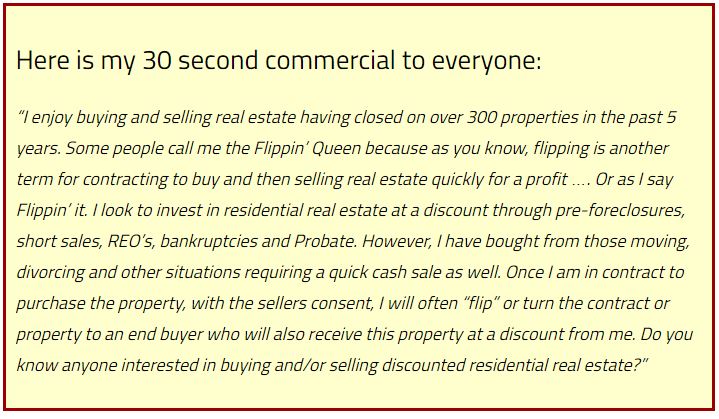By Linda Pliagas
Success is that magical place that combines
perfection in both the physical and spiritual realms. Success leads to
ultimate bliss. Some call it “success”, some say it’s “heaven on
earth”, others name this exceptional feeling “nirvana” or being
in “the zone.”
Regardless of the name, success can definitely be
felt. It can be experienced for minutes, hours, days, years and even decades.
Certainly success can be measured as well.
In fact, when one hears “success”, the
first things that may come to mind are material objects: an ocean-view mansion,
name-brand clothing, a luxurious private jet, a rare fine watch, the list goes
on.
Most people envision these things as the ultimate
“must-have” items of success. The ability to purchase whatever one
wishes, whenever they wish, is certainly one measure of success.
Before I provide some strategies that I’ve
observed in successful individuals, I’d like to share why I’m qualified to
write about what success is and means.
As a journalist for the past 25 years, I’ve had
the honor of interviewing numerous successful people in many industries. I
began publishing magazines my junior year in college and began to interview
people in high regard, such as best-selling author Brian Tracy, financial guru
Suze Orman, fashion designer icon Oscar de la Renta, celebrated performer
Jennifer Lopez, among others.
Fast forward to today… as the publisher of Realty411
and REI Wealth magazines I regularly speak with wonderful leaders.
Recently, I had the pleasure of interviewing Jason Oppenheim from the Netflix
hit, Selling Sunset.
With our real estate conferences, we’ve also
interviewed HGTV’s Good Bones. The mother and daughter team, Mina
Starsiak Hawk and Karen E. Laine, also shared such wonderful
insight.
During interviews with my sources, my goal as a
professional journalist was always to ask poignant questions. I tried to
make my sources comfortable so that they would reveal as much insight as
possible to help our readers become successful.
How did they get to where they are now? Do they
follow a regimen? Did they obtain special education? Do they have specialized
knowledge? Can they share any insider secrets?
ADVERTISEMENT
One of the benefits of being a journalist is that
one is exposed to a never-ending stream of knowledge, information that I also
have implemented over the years. I’ve seen incredible accomplishments in my
life from the application of just a few concepts. I’d like to share some of
these with you so that you can also see some amazing results in your life as
well.
Following is an outline on some of the concepts
we will focus on in this chapter.
1. Have a Successful Schedule
2. Practice Pro-Success Habits
3. Create a Long-term Plan for Success
Let’s dive into some of these lessons I’ve learn
along the way from some of the most successful people in and out of real
estate.
1. Have a Daily Schedule to Maximize Performance
Every high-achiever I’ve ever met has a written
daily plan in order to achieve maximum success. I’ve seen many different
types of preferred schedules, including: a calendar synced to an email, a
preferred online program, (such as Calendly.com), an Excel spreadsheet, and
even a traditional notebook planner.
Regardless of format, having a daily plan for
success gives individuals an edge. Little time for idleness exists when life is
planned in advance. Having a routine is not only important for working adults,
mothers, educators, and nurses alike all have set schedules for those in their
care.
So I ask you what is your current daily schedule?
Do you have one? Do you regularly miss important appointments? Are you late
with work deadlines?
Before we go further, let’s examine your daily
schedule. Is it one suited for success? Do you know what would a successful
schedule look like?
Well, one of the wisest men of all time, Benjamin
Franklin said: “Early to bed, early to rise, makes a man healthy, happy,
and wise.”
I follow the words of Benjamin Franklin, a great
statesman, writer, scientist, inventor, diplomat, political philosopher, and
publisher.
Many successful people I know have a morning
routine that goes something like this:
They awake before dawn, pray or meditate,
exercise, spend time with family, and then the daily hustle begins.
Writing down a daily schedule of tasks, as well
as having a set calendar, are important guidelines for high achievers. Little
room for mistakes exists when everything is written down. High achievers know
that having a daily schedule will maximize performance.
Keep in mind that a successful person’s schedule
allows room for a balanced lifestyle, which includes time for family and
friends, self care, such as quiet “me” recharges, regular stretching
and exercise, education and self-improvement, hobbies and fun, and time for
spiritual reflection.
From all my interviews with successful people,
I’ve come to realize that their daily schedules are all quite similar.
Remember: Planning for a life-time of success
begins with planning a successful day ahead.
2. Practice Pro-Success Habits
Everyday habits are creating the life you are
leading right now. If your goal is to increase your success, then it’s
important to take accountability of your time. How is it spent?
John C. Maxwell, an author, speaker and pastor
who has written many books, primarily focusing on leadership, wrote:
“You’ll never change your life until you change something you do daily.
The secret of your success is found in your daily routine.”
ADVERTISEMENT
With this in mind, it’s essential to fill your
time with pro-success habits. Many books on successful habits have been written
by numerous experts. While they may explain the success formula differently, it
seems they all promote the same important habits.
From my research in reading on the topic, as well
as in-person interviews with many successful people, it seems some of the
habits they all share include:
1. Successful people rise early to seize the
day
2. They exercise regularly to maximize
functioning
3. Many of them spend time in daily prayer,
meditation or quiet reflection
4. For high achievers, life-long learning is a
top priority
5. Networking with influential people is
important for them
6. Successful people spend time organizing their
office, home, and life — in preparation for even greater success
7. Influential people recharge regularly by
spending time with loved ones
8. They take MASSIVE action!
From the above points, we can see that the most
successful of people are hard workers who take calculated risks and are
rewarded for their efforts.
In my opinion, success is a way a life… it’s a
journey, rather than a destination. By engaging in positive habits, you’ll
position yourself for greatness every single day.
3. Create a Long-Term Plan for Success
Writing goals down on paper is an essential part
of creating a successful business and life. Some people wait all year before
they even contemplate their goals. And then, on New Year’s Eve, they reflect on
what lies ahead. Some may write down their New Year’s resolutions, even then,
some just don’t even bother to do it at all.
And yet people wonder why they’re stuck in the
same old job year after year. The reality is if you’re not actively creating
the life you want, your life will be reactive. It’s time to be pro-active and
take charge to create the life you desire.
We touched upon creating a written daily schedule
as well as engaging in pro-active successful habits. Now, let’s discuss
designing a long-term plan in your ultimate life success playbook.
Writing down goals is something that high
achievers do on a regular basis. When was the last time you wrote down your
goals? It can be a list of your professional goals, personal goals or a
combination of the two.
In addition to yearly goals, I also like to have
a five-year plan and a 10-year plan as well. The task of writing down goals on
paper makes it concrete, and begins to get everything started on the right
track.
Many years ago, when I was cleaning out a portion
of my desk, I came across a 10-year plan from my early twenties. Miraculously,
most of the goals I had written down did in fact materialize in my life:
meeting my husband, buying a home, traveling to Europe, having a family,
becoming a successful journalist.
In fact, I surpassed my humble goals, which
taught me to aim higher. I challenge you to create three different “goal
plans”. First create a one-year plan, then a five=year plan, and lastly a
10-year plan. I promise you’ll start to see incredible things unfold in your
life.
It’s time to set the course of your life on the
path of success, too.
I hope these success strategies can help you and
all of our readers create the life you want and deserve. I challenge you to continue
in your quest for greatness by practicing proactive daily habits. Remember to
keep learning and preparing for the incredible success that lies ahead.
Best regards,
Linda
Learn live and in real-time with Realty411. Be sure to
register for our next virtual and in-person events. For all the details,
please visit Realty411Expo.com or our Eventbrite landing page, CLICK HERE.FacebookTwitter


















